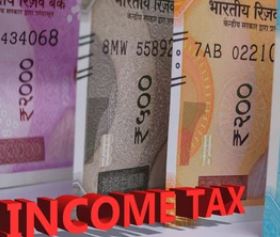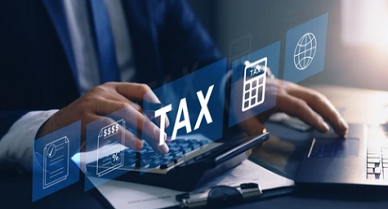Faceless Assessment and Appeals under the Income Tax Act, 1961
INTRODUCTION:
It is an undisputable fact that this scheme is a time- saving process, establishes faith between the assessee and the concerned authorities. It also provides detailed and complete information related to tax compliance and also lessen the cost and burden of the said compliance but in spite of all this there are some major concerns of the scheme which exists. One of the major drawbacks of this scheme is that it does not provide for personal hearing via video conferencing in case of any default which is an infringement of principle of Natural Justice. The aspect of personal hearing through online mode or through video calling is not considered as a right which should be provided by default but is always seen as an exception to this well-established rule of application.

Process of faceless assessment scheme:
The whole system of the assessment is directed through National e-Assessment Centre (NeAC)[2] in which it allots cases identified for paperless assessment under the programme and passes on to regional e-assessment centers through a technical allocation system. The assessment process then proceeds across all modes of communication primarily via mode of electronic exchanges, guided through the National e-assessment center.
The provision for individual and fair hearing via video conferencing do exist as per the procedure laid down by the scheme but it is not considered as a matter of right which can be claimed anytime rather it is seen as an exception. The faceless assessment scheme by giving the authority to the officer in charge who is not a judicial body, to fulfil judicial function while making an assessment gives rise to the Constitutional challenges & compels to question its validity. When a judicial function is being done by a non-judicial body such as assessing officer in the present case, the fundamentals of natural justice cannot be compromised. The Hon’ble Courts have always emphasized on the fact that idea of natural justice should be followed throughout the process of assessment and no superior authority should interfere in the said process. This scheme does not have a proper provision for individual hearing as a matter of right in case of any default.
The Scheme and violation of principle of Natural Justice[3]:
The rules of Natural Justice are the fundamental rules and violation of these rules is seen as denial of justice. These principles consist of rules which offer protection to the rights of the citizen against an irrational proceeding by the judicial, administrative and quasi-judicial bodies which is done in order to affect those rights. The paperless or the faceless assessment scheme purports to violate the most fundamental principle of Natural Justice i.e., Audi-Alteram[4] as it does not consider personal hearing as a matter of right. Audi-Alteram means hearing the other side and it does affect this principle in the following manner:
- It does not mandate the right to individual hearing in case of any default.
- The officer who is empowered to make the assessment also does not have the authority to permit personal hearing.
- Prior consent is required from the Chief Commissioner or Director-General of Income Tax in charge of the regional e-assessment center.[5]
- This scheme does not provide any scope for resolving the dispute that the officer in charge may encounter during the assessment procedure.
In the case of Rajesh Kumar v DCIT[6] the Hon’ble Supreme Court held that proceedings taking place before the Income-tax authorities are judicial proceedings.[7] Therefore, the limitation on the right to being heard is the infringement of fundamental right and is also unconstitutional.
If assessee is not satisfied with the order passed by the assessing officer, he always has the choice of going for appeal. Also, section 263 of the Income Tax Act, 1961 gives power to the department to revise an order if it is discovered to be incorrect and against the interest of the department.
Faceless Appeal Scheme
It has been notified by CBDT w.e.f. 25th September, 2000[8] and under this appeal everything right from the appeal, verification, communication of notice, inquiry of the order would be through online mode without any face-to-face interaction between the assessee and the tax authorities. But again, the right of being heard is on the discretion of the Chief Commissioner or the Director General[9] and their decision on this matter prevails. Therefore, it is violative of the provision of section 250(1), (2) and (5) of the 1961 Act[10] which provides that right of being heard should be granted at the stage of appeal.
Brief Analysis:
The faceless assessment scheme and appeal are the biggest reform in the area of tax and it has the potential to bring more fairness, transparency, accountability in the whole assessment process. It makes the process very convenient and hustle-free for the tax payer and also minimizes the scope for further litigation. Though there are some problems related to right to personal hearing but we see it’s not completely denied. It has been given depending upon the case and the conditions as discussed earlier. The scheme seems to be a significant reform in field of tax but along with that it has to face some constitutional challenges as well.
Author: Aanchal, 5th year BA.LLB student of KIIT School of Law, Bhubaneshwar, in case of any queries please contact/write back to us at support@ipandlegalfilings.com or IP & Legal Filing.
[1] CBDT F No. 225/267/2015-ITA-11 dated October, 2019
[2] National Assessment and accreditation council, naac.gov.in, NAAC – About Us
[3] Mohd Iqbal, Principle of Natural Justice, Legal Service India E-Journal, www.legalserviceindia.com.
[4] Concept of Post Decisional Hearing, eduindex.org
[5] Notification no. 2/2021
[6] [2006] 287 ITR 91 SC
[7] [2006] 287 ITR 91 SC
[8] CBDT Notification No. 77/2020 dated September 25,2020
[9] Notification No. 2/2021
[10] Income Tax Act, 1961


